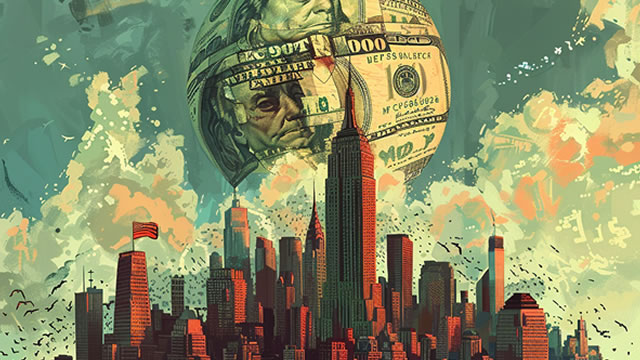The Trade War’s Impact on Consumer Confidence: A Closer Look
A recent survey conducted by the University of Michigan’s Consumer Sentiment Index revealed a significant decline in consumer confidence, with the index dropping to its lowest level since President Trump took office. This downturn can be largely attributed to increasing concerns over the escalating trade war between the United States and its major trading partners.
The Trade War: A Brief Overview
The trade war, which began in early 2018, is a series of protective tariffs imposed by the United States and other countries on each other’s imports. The primary aim of these tariffs is to protect domestic industries from foreign competition. However, they also lead to higher prices for consumers and potential damage to global economic growth.
The Impact on Consumers: A Closer Look
The University of Michigan’s survey results highlight the growing unease among consumers regarding the economic outlook. The index’s current economic conditions component dropped by 6.4 points, while the expectations component fell by 6.8 points. This decline in consumer confidence can be attributed to several factors:
- Higher Prices: The tariffs imposed by both the United States and its trading partners lead to higher prices for various goods, including electronics, automobiles, and agricultural products. These increased costs are being passed on to consumers, leading to a decrease in purchasing power.
- Uncertainty: The ongoing trade war creates a great deal of uncertainty for businesses and consumers alike. This uncertainty can lead to a decrease in investment and spending, as companies and individuals hold off on major purchases until the situation becomes clearer.
- Global Economic Slowdown: The trade war is just one of several factors contributing to a global economic slowdown. Other factors include aging populations, decreasing productivity growth, and rising debt levels. The combination of these factors can lead to a decrease in consumer confidence and spending.
The Impact on the World: A Closer Look
The trade war is not just impacting consumers in the United States. Its effects are being felt around the world. Here are some ways in which the trade war is impacting various regions:
- China: China, the United States’ largest trading partner, has been hit particularly hard by the trade war. The tariffs imposed by both sides have led to a decrease in exports and a slowdown in economic growth. This, in turn, can lead to social unrest and political instability.
- Europe: Europe, which is the United States’ second-largest trading partner, has also been impacted by the trade war. The tariffs imposed on European steel and aluminum have led to a decrease in exports and increased tensions between the United States and its European allies.
- Mexico and Canada: Mexico and Canada, which are the United States’ third and fourth-largest trading partners, respectively, have also been impacted by the trade war. The tariffs imposed on their exports have led to a decrease in investment and a potential loss of jobs.
Conclusion
The trade war is having a significant impact on consumer confidence, both in the United States and around the world. Higher prices, uncertainty, and a global economic slowdown are just a few of the factors contributing to this decline. The ongoing trade war also has the potential to lead to social unrest, political instability, and a decrease in investment and spending. It is essential that all parties involved in the trade war come to the negotiating table and find a mutually beneficial solution before the situation becomes even more dire.
As individuals, we can take steps to mitigate the impact of the trade war on our personal finances. This can include diversifying our investments, reducing our reliance on imported goods, and increasing our savings. By taking a proactive approach, we can help ensure that we are well-positioned to weather the economic uncertainty caused by the trade war.





